Are you considering enrolling your little one in a daycare but not sure where to start? Finding the right daycare can feel overwhelming, with so many factors to consider, from safety to curriculum. In this article, we'll explore key points to keep in mind when inquiring about daycare services and how to assess if a facility aligns with your family's needs. Join me as we dive into essential tips and insights to make this important decision easier for you!

Personal Information
Daycare services often require detailed personal information for enrollment and communication. Parents should provide their child's full name, date of birth (to determine age eligibility), address (for location context), and parent or guardian's full name, contact number, and email address (for emergency contact and official correspondence). Additional details may include medical information such as allergies or special needs, schedule preferences (full-time or part-time attendance, specific days), and any specific instructions or requirements for pick-up and drop-off procedures. Understanding this information is essential for providing tailored care and ensuring the safety and well-being of each child.
Child's Age and Needs
Inquiring about daycare services requires understanding particular details surrounding the child's age and developmental needs. Most daycare centers cater to children ranging from six weeks to five years old, ensuring tailored programs for each developmental stage. Infants (typically aged six weeks to 12 months) require nurturing environments focused on sensory experiences and basic motor skills. Toddlers (aged 1 to 3 years) benefit from structured playtime, fostering social skills and early language development. Preschoolers (ages 3 to 5) need preparation for school environments, emphasizing cognitive skills, cooperation, and independence. Understanding specific requirements such as allergies, nap schedules, and special developmental assistance further ensures that the selected daycare meets individual needs effectively.
Program Details and Curriculum
Inquire about daycare services reveals essential insights into program details and curriculum structure. Many facilities cater to children aged six weeks to five years, emphasizing early childhood education principles. Programs might include structured play, arts and crafts, language development, and outdoor activities, aligning with developmental milestones. Curriculum details often highlight academic skill-building, socialization techniques, and emotional growth strategies. Additionally, accreditation from organizations like the National Association for the Education of Young Children (NAEYC) ensures adherence to high-quality education standards. Understanding teacher-to-child ratios, daily schedules, and assessment methods can further clarify educational approaches and overall effectiveness.
Staff Qualifications and Ratios
Inquire about daycare services to gain insight into staff qualifications, which include educational backgrounds, training in early childhood education, and certifications such as CPR or first aid. Additionally, investigate child-to-staff ratios, which are crucial for ensuring personalized attention and supervision, typically outlined by local regulations (for example, a ratio of 1:3 for infants, 1:5 for toddlers). Understanding these elements will provide clarity on the quality of care and safety measures implemented for children in the daycare environment.
Safety and Security Measures
Inquiring about safety and security measures in daycare services is crucial for ensuring a safe environment for children. Parents often seek information about protocols such as child-to-staff ratios, background checks for caregivers, and emergency preparedness plans. Additionally, details regarding facility safety features, such as secure entrances and surveillance systems, are essential. Understanding policies on health emergencies, fire drills, and visitor management enhances parents' confidence in the daycare's commitment to safety. Furthermore, asking about training for staff on first aid and child CPR can provide reassurance about the care provided in unforeseen situations.

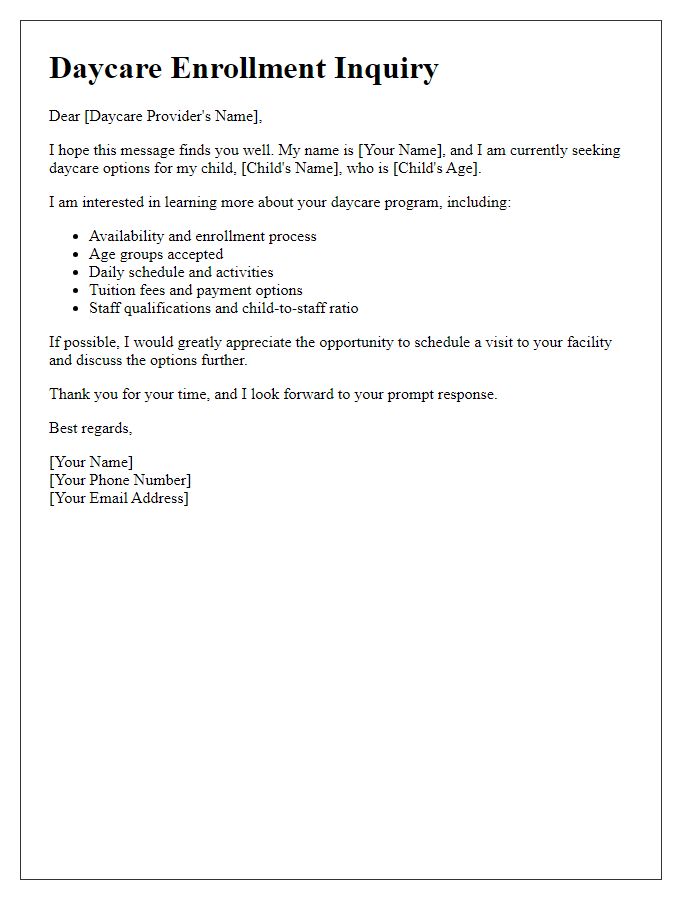
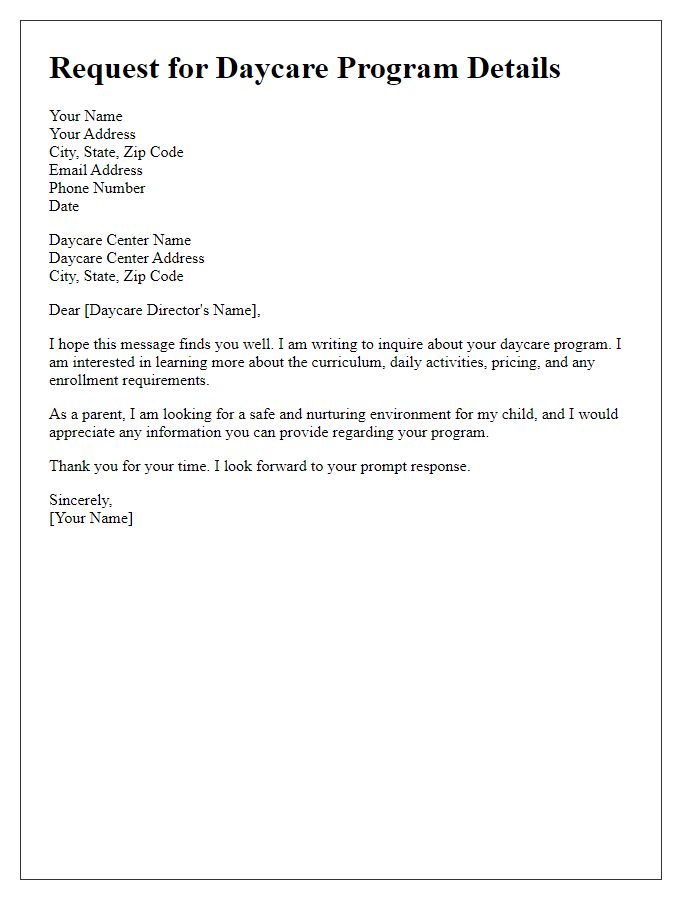
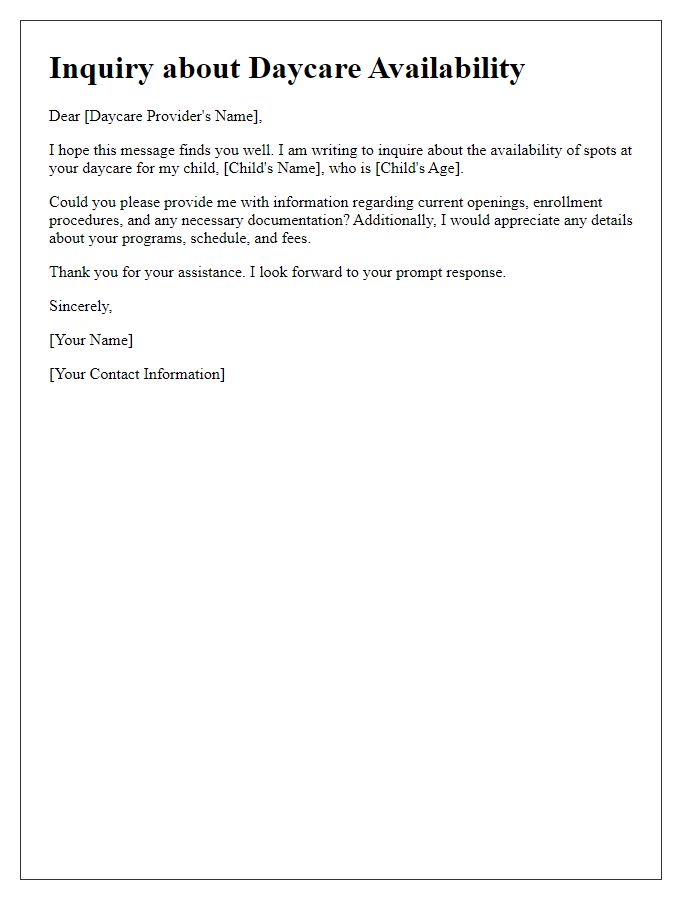
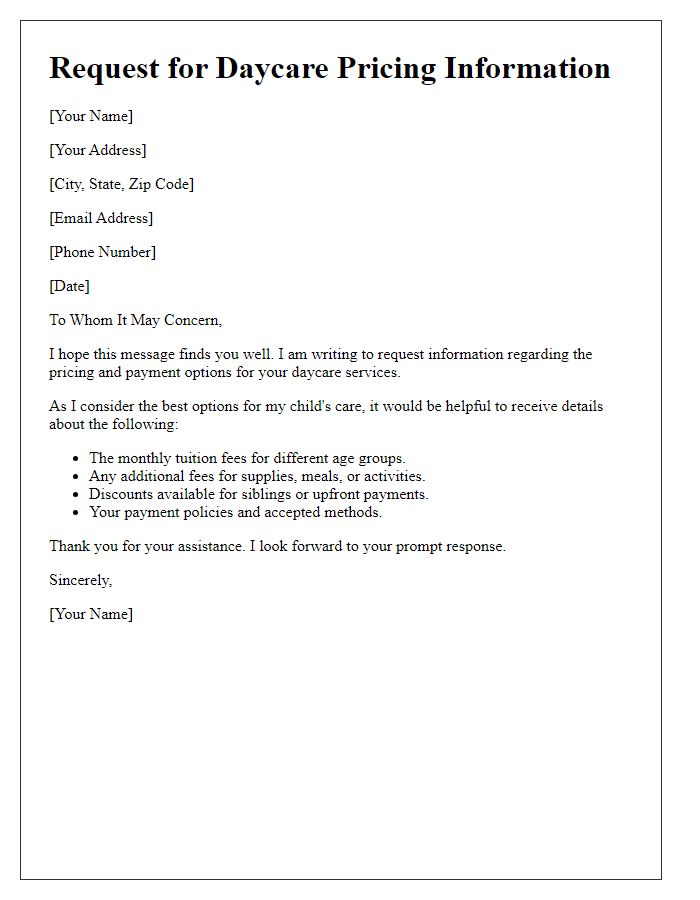
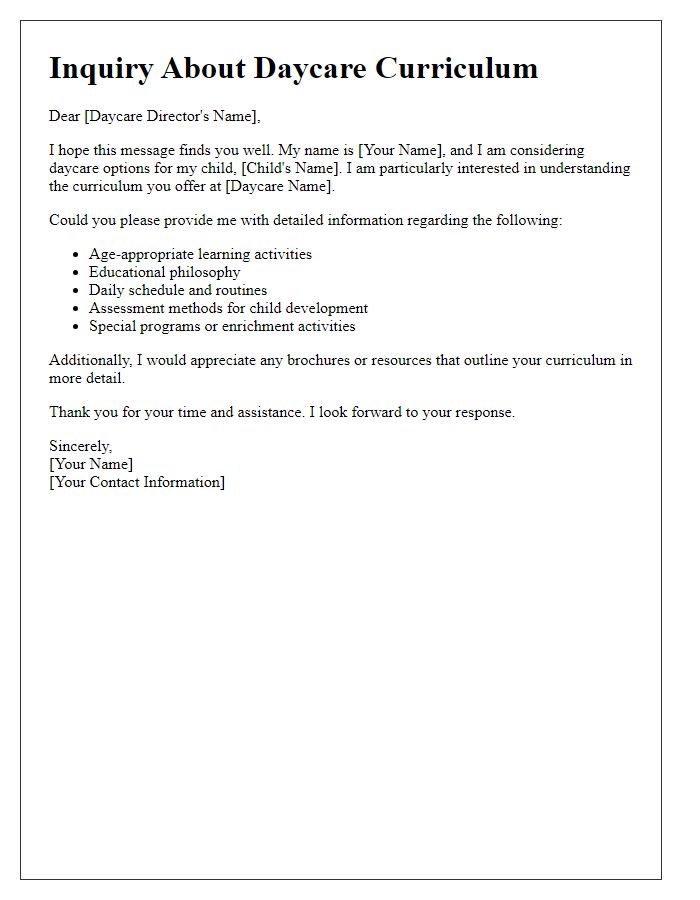
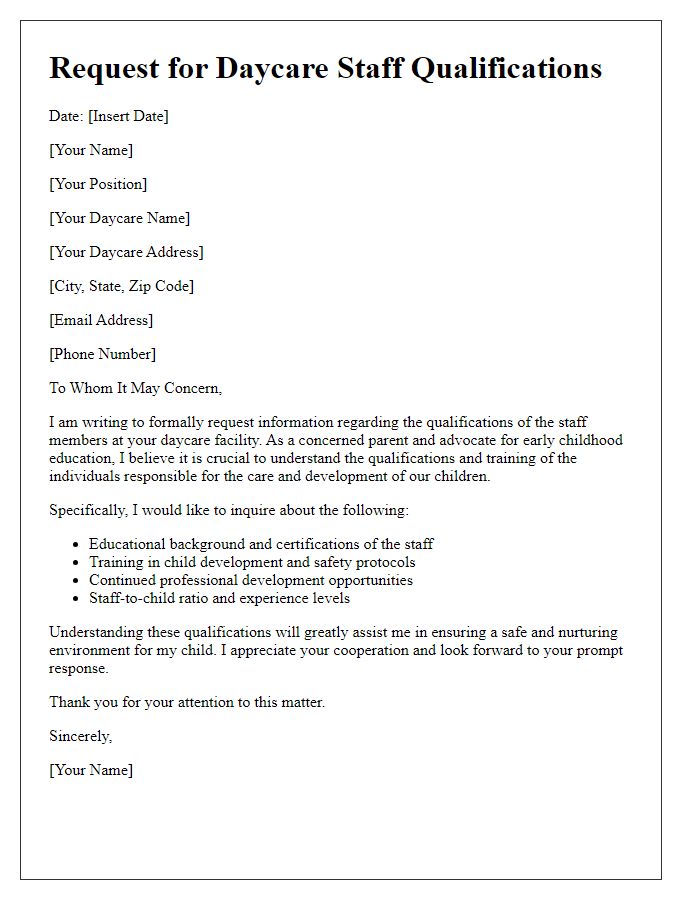
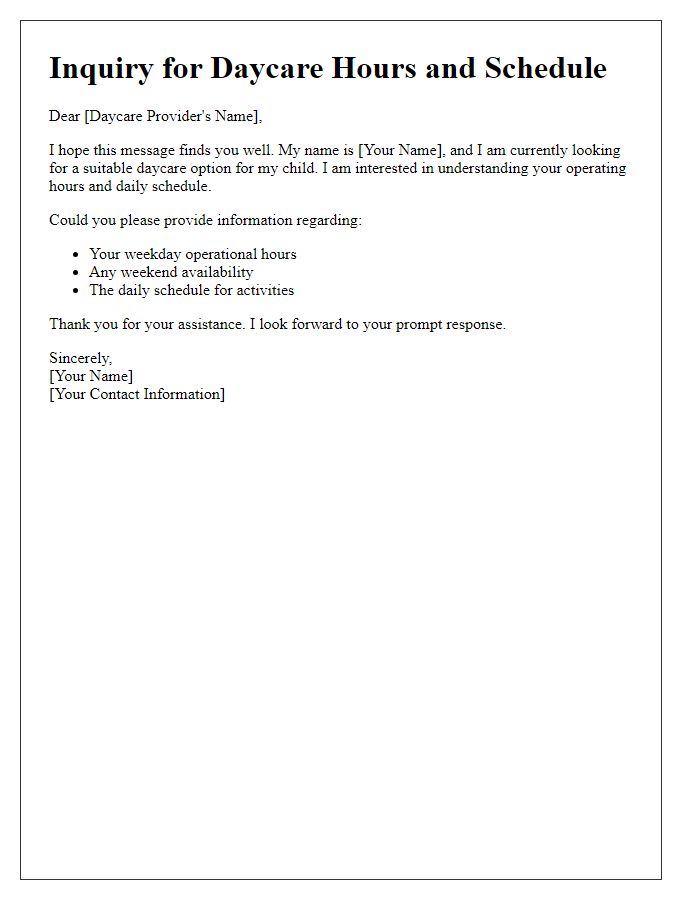
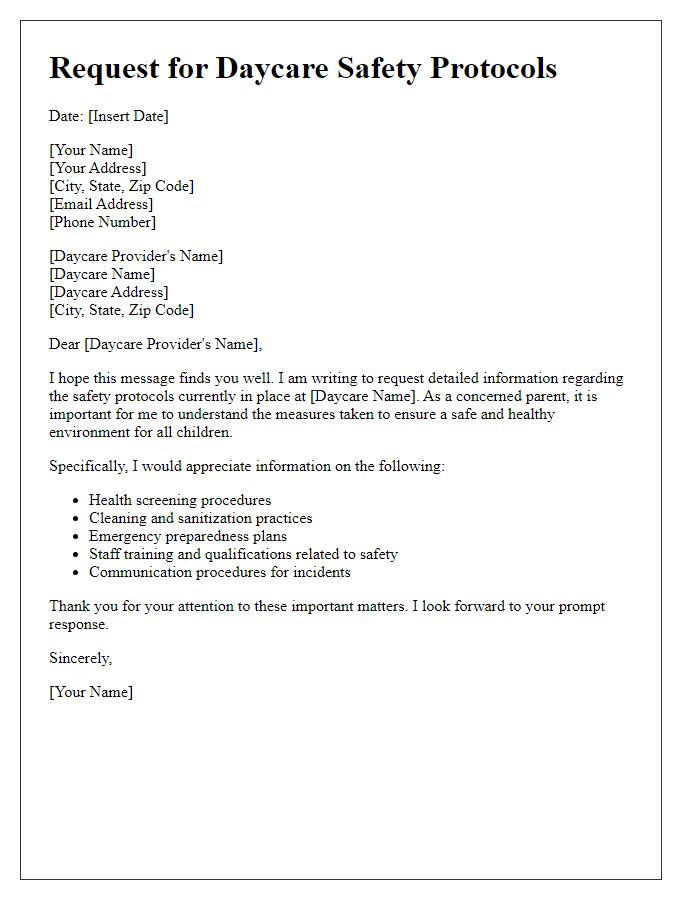

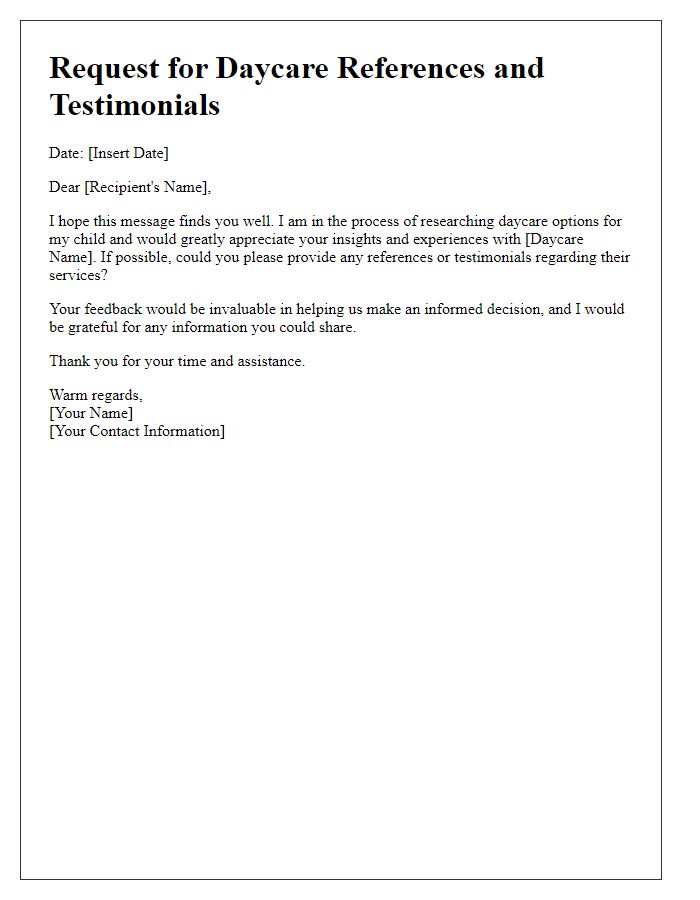


Comments